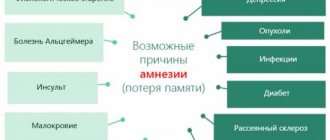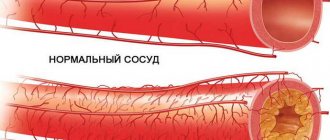In various films, we can often see fearless intelligence officers or experienced investigators who easily notice details, remember a phone number just by looking at it, and can accurately determine what has changed in a room if strangers have been there.
We perceive such abilities as something out of a movie and don’t get upset if we don’t remember exactly what clothes our husband wore when he went to work, how the jars were arranged in the cabinet before cleaning, and what the procedure for filling out reporting documents was.
Instead of worrying about the question of how to develop attention , we blithely wave our hand and say: “Just think, I can live without attention!”
But you never know what turn your fate will take; perhaps it is the ability to notice details that will someday save your life or help you get what you want.
What happens in our brain when we are focused?
First, let's look at what happens in our brain when we are focused and when we are distracted. It turned out that both of these processes are interconnected.
When the brain is focused on a task, it goes through two main stages. It is believed that our ability to selectively concentrate is controlled by gradually decreasing power of attention control systems. Essentially, these “systems” ask us one question: “What do you want to focus on now?” When we make a decision, our brain goes through two stages to sort through and understand the information:
Photo Credit: [henning] via Compfight
- Visual. We scan the entire “territory” to find what we need to focus on. This process can be thought of as focusing through a camera lens. At first everything is blurry, then clear contours of objects caught in the lens appear.
Photo Credit: photoholic image via Compfight
— The stage of focusing attention on one object. The object we need “floats out” from the general “blurred” background.
The same processes occur with voluntary and “involuntary” focusing. When we are focused, our perception of the world around us changes and we have an increased ability to ignore what is happening around us. This allows us to “get into the flow.”
From a psychological point of view, these moments are described as effective joint work of the right and left halves of the brain, aimed not only at achieving results, but also at cutting off peripheral “distractions.” It seems to us that time disappears and we become an absolute whole. Such moments have much in common with trance states.
Daily routine
To develop your child’s attention, it is not necessary to sit down at the table with him and start doing something uninteresting. Even simple things that we do every day, without even noticing it, can have a positive impact on a child’s ability to successfully maintain attention:
- Finding lost toys is a very valuable ability because you need to concentrate and remember where you last saw the toy, when you used it, where you put it, where it might be. Help your child build a logical chain in this way. So, he will learn to navigate among things and objects much faster;
- cleaning toys is a task that must be completed;
- building a sequence of actions in any task - to put away toys, you first need to get a box for them, then put the toys there and put the box back in place;
- remembering the names of relatives and who is related to whom;
- simple manipulations with food in the kitchen - peeling an egg, for example;
- procedures for getting ready to go outside - pulling on tights, turning out a blouse, folding things, tying shoelaces - develops not only attention, but also fine motor skills;
- handicraft skills - sawing, sewing on buttons, planing, embroidery, burning;
- maintaining silence in the evening, so as not to disturb the household, requires a certain amount of effort from a restless child.
But what happens in our brains when we lose focus?
The roots of impaired focus go deep into our natural systems for maintaining an optimal level of security. The processes of our attention are structured in such a way that our consciousness, in response to any “distracting” factor, is obliged to ask us: “What is happening at the moment requires our attention?” Two main factors lead us to the most intense “crash of attention”: bright colors or light, and loud sounds.
Our attention is drawn to things that may be potentially dangerous or make alarming sounds. Unfortunately, once the focus has shifted to an outside factor, it can take us up to 25 minutes to regain the lost level of concentration. Every time we get distracted, we start the clock again. Essentially, we are slowly running out of our initial supply of distractions.
Photo Credit: Malia León via Compfight
Think of our “attention system” as a glass of water you hold in your hand. One day - one glass. When everything is calm, through the surface of the water, you can see what is behind the glass. But as soon as you twitch, the water begins to move and splash out, and until a state of complete rest sets in, nothing will be visible through the glass... By the end of the day there is no water left in the glass, and you need to go to bed to fill it...
All the above information leads us to a useful conclusion: having identified the “remnants” of the evolutionary process that are interfering with us, we can try to “remove” the triggers laid in the brain and focus on what is important to us.
Photo Credit: rpadma777 via Compfight
How can I develop attention?!
At school I was on friendly terms with one girl.
Everything about her was good, except for her terrible inattention. Sometimes it seemed like she didn't notice anything around her.
Yana could easily come to school in different socks, leave her wallet quietly lying next to her bag, and then return for it, not remember where she just put something or even what brand of milk her mother buys, although she regularly went with her go shopping.
Those around her laughed at the girl’s character traits, but did not see any serious problems in this, until one day a very unpleasant story happened.
My class and I went on a picnic and decided to play hide and seek in the forest.
They limited the territory (very small, by the way), beyond which you cannot go.
How to improve memory?
Our game ended sadly - Yana went a little further and could not find her way back.
She had absolutely no memory of landmarks, direction, or anything.
We found her quickly, but the girl managed to get scared, burst into tears, and from then on she firmly decided to do everything to develop attention and stop counting crows.
How to determine what exactly affects our concentration and remove these triggers?
All people are completely different. It is possible that on your way you also came across those who could calmly prepare for exams, sitting in front of the TV on in an apartment filled with noisy young people. But in order for you to help yourself focus when you need it, you need to identify your own triggers and get rid of them.
First, each of us needs to minimize the impact of noise and light in the workplace.
If these two factors distract you the most, take action. Earplugs or headphones with soft music will help drown out the noise of the open space, and turning off all notifications and logging out of email and social networks (or at least turning off audio and visual alerts) will bring positive results. Neurologists have found that even such minimal restrictions as reducing light and sound sources will allow you to be less distracted and maintain a working mood longer.
Secondly, each person must independently give up personal “distractions” in the form of thoughts about what to cook for dinner, why the girl didn’t want to go on a date, or what the boss just said. These “brain wanderings” can and should be limited. You can come up with some special ritual associated with increasing concentration, for example, rubbing your palm against your palm or drinking a glass of water. According to psychology experts, our brain is so tuned to multitasking that in order to achieve optimal concentration, we should not diminish the importance of setting it a task like: “I will not be distracted by anything for the next forty minutes.”
Photo Credit: Sharizah via Compfight
It is worth starting what you have planned as soon as possible. Then the emotional excitement associated with the emergence of a new idea will not “break” under the pressure of external circumstances. It turned out that most motor or mental acts carry a significant supply of energy for their implementation. And, if we pay special attention to a distracting moment, we will “interrupt” the supply of energy from our main goal, and begin to “feed” ourselves from the energy resource that allowed us to be distracted.
Where does absent-mindedness come from?
At the very moment when you are intently reading this article, the lion's share of your attention may be wasted, for example:
- periodically you fall into your thoughts, deep into yourself and lose the thread of meaning;
- your thoughts go in circles, replaying for the hundredth time some situation where you looked ridiculous, you were ashamed or offended;
- thoughts fluctuate, jump from one topic to another, and it is impossible to keep attention on the necessary information;
- concentration is lost when suddenly your heart treacherously pierces, and once again the emotions that you once experienced come flooding back.
It is obvious that a huge share of attention is spent on some unconscious processes, and it is not very possible to manage this flow. What to do?
Let's discard the unnecessary: what methods of increasing concentration do not work and why
On the Internet you can find a variety of recommendations on how to improve concentration. In general, they can be divided into three large blocks:
- Logic puzzles, crosswords, puzzles.
They are designed to provide some scope for comprehension and help a person through constant brain training. This method may be partly useful for older people who, due to age, have lost their social fulfillment and have nowhere else to apply their abilities. But even in this situation, it is clear that at least partial implementation in society will bring much more benefit. We see many famous personalities who maintain a clear mind into old age - and they are all socially active. A real field for concentrating the mind is always much more effective than a fictional one.If you are young and able to work, such “brain exercises” will do nothing at all. The problem is not that there is nothing to think about (there are a lot of options: study, work, creative projects), but that it is impossible to concentrate.
- Medicines or folk remedies to increase concentration.
There are times when consultation with doctors is necessary. Sometimes a problem with concentration is simply one of the symptoms of some disease. Therefore, if there are other accompanying complaints (nausea, headaches, loss of strength, etc.), you should contact a competent specialist. It is especially important to do this if you have suffered a traumatic brain injury or have problems with the central nervous system.To exclude possible pathology, it is better to undergo an examination.
But if no objective health problems are found in you, then the problem of decreased attention is most likely psychological. In this case, attempts to take herbs or medications to improve concentration usually do not work. Because they do not eliminate the cause of the problem.
- Meditation and other ways to control the flow of thoughts.
Those who guessed that the main obstacle to concentration is our “thought stirrer” or “thought phone”, offer another way. Try to control your consciousness, manage it. There are also a huge number of exercises offered here, in which you either need to not think about anything at all (completely clear your mind) or concentrate on something specific (a flower, a stone, any object).
The problem with all these methods is one thing: the lack of results. Even if you manage to follow the rules for the duration of the exercise, then in a real situation everything again goes as before. Either we “fall into ourselves”, or what is spinning in our heads is not what we need.
Why is that? For a visual illustration, imagine that your tooth hurts like hell. Will you be able to really concentrate at such a moment, watch or listen with interest? Hardly. But in our case, the person’s soul hurts. Whining, whining, whining about something of his own. Or simply craves peace and quiet. So much so that she doesn’t care about any other information.
There is only one working way to increase concentration in this case: to free yourself from those psychological problems that do not allow you to live and constantly occupy your thoughts. Then a huge resource of energy is released, which can be directed in the right direction.
A few ideas to enhance your concentration.
1. Increase the urgency of the task that needs to be completed.
Photo Credit: snapclicktripod via Compfight
Many managers know what “hidden” resources a stressful “deadline” can activate in employees. Every person has experienced a sudden “awakening of abilities” under the influence of time constraints. Remember how quickly and efficiently you and your friends cleaned the house before your parents arrived as a child! Therefore, limit yourself in time. Set aside forty minutes to write an article, and be sure to reward yourself if you successfully complete the task. Go for a walk, eat something delicious, or call a loved one. The final goal of this lesson is to learn how to set yourself up so that every task you want to complete becomes key.
2. Meditation
Photo Credit: vramak via Compfight
Our brain is plastic and learnable. In the process of meditation, he learns to concentrate better. We are not talking about meditations related to religion. We talk about focusing on your breathing and blocking out your thoughts. The best meditation technique the author came across was asking a simple question: “Where will my next thought come from?” within a few minutes. Amazing relaxation effect and excellent work results at the end.
3. Immerse yourself in entertainment.
Photo Credit: Alba Soler Photography via Compfight
One of the most enjoyable ways to help you gain concentration can be... thoughtful absorption of media content. Immerse yourself in your favorite game, or watch a movie, or read a book. An important condition is that no one and nothing should distract you at this moment: neither updates from social networks, nor calls from friends or requests from family. You must give yourself entirely to the entertainment, concentrating all your attention on what is happening. In essence, it doesn’t matter to the brain whether you are writing a dissertation or drawing for your own pleasure - the ability to concentrate should manifest itself in both.
Practice visualization and associations
Images are easier to remember than facts. Scientists have discovered that we never actually forget anything. The reason that we cannot remember some information is the lack of so-called “mental hooks” for retrieving it from memory.
There are various techniques for using visualization and associations for memorization - here you just need to choose an expressive image. For example, memorizing a grocery list before going to the store can seem like a frustrating task to many. Try to pick up some associations. For example, you need to buy blueberries. Before going to the store, you can imagine a rock dove in your hand. And if, upon arriving at the store, you forget the name of the berry, then, remembering the dove, you will easily remember the consonant name of the berry.
Additionally, the tips from the article How to learn to remember names will be useful.
Developing attention while walking
There are also many opportunities to train your attention on walks:
- observing people on the street - who is wearing what, who is different in what way, what features of the image can be noted;
- observation of insects and birds - what they look like, how they differ from each other;
- watching cars, for example, how many times a red car drove past;
- we remember the route from the house to the playground - we build internal passages through the elevator or entrance steps, right to the corner of the house, then left to 3 trees and then straight along the green path;
How and in what ways is mindfulness manifested?
- Professional activity. The ability to focus on a task is one of the important qualities in any activity.
- Relationship. Consideration is a very valuable quality in close relationships.
- Personal growth. Mindfulness shapes a person's character and outlook.
- Psychological health. Mindfulness indicates the presence of an “inner core” in a person. An attentive person can control attention and direct it to what he considers necessary.
- Creation. With the help of attention, a person chooses what is close to him and goes deeper into it.











